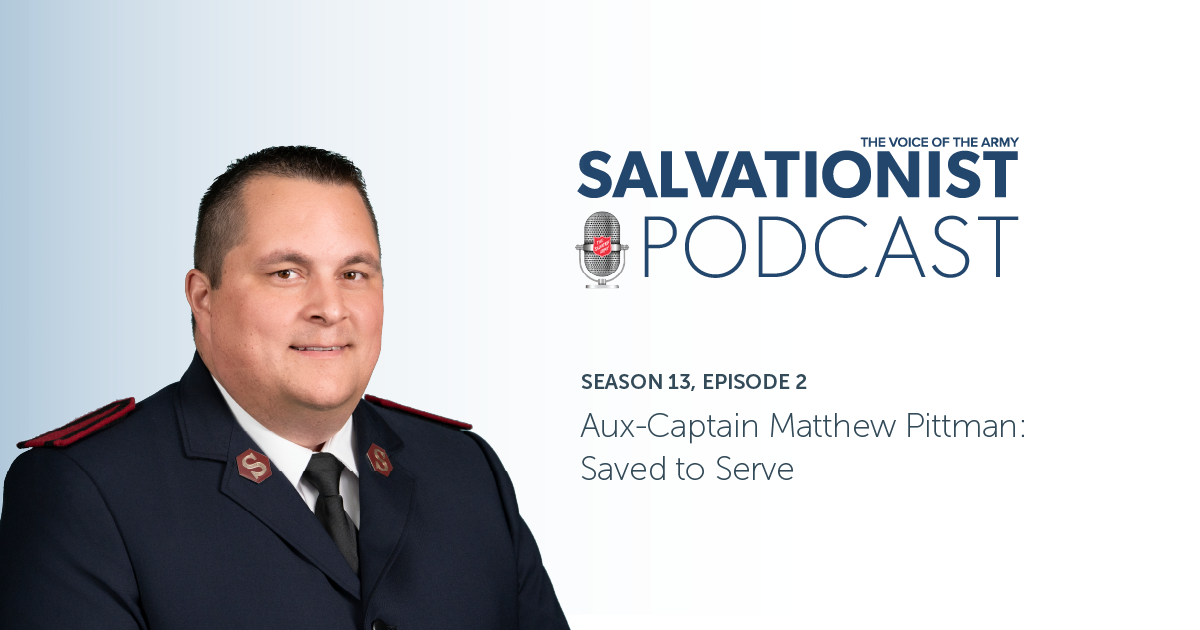 The perennial debate over The Salvation Army's spiritual and social mission is alive and well. The question continues to surface among leaders and followers; in board rooms and chat rooms; in the corps and in the class room. “Is our primary calling that of preaching the Gospel or that of ministering to the social needs of humankind?”
The perennial debate over The Salvation Army's spiritual and social mission is alive and well. The question continues to surface among leaders and followers; in board rooms and chat rooms; in the corps and in the class room. “Is our primary calling that of preaching the Gospel or that of ministering to the social needs of humankind?”
The answer to the question is a resounding “Yes!” God calls those whom He has ordained as spiritual leaders (John 15:16) to proclaim the Good News to individuals and campaign for each individual's well-being. He calls His spiritual leaders to proclaim and campaign simultaneously! Salvation and service are not two missions, but dual aspects of one overriding mission of fulfilling the Great Commission to “make disciples of all nations” (Matthew 28:19).
A sensitive, discerning social conscience is at the heart of authentic discipleship. The Gospel is a Social Gospel. John Wesley recognized this truism. “The gospel of Christ,” wrote Wesley, “knows of no religion, but social, no holiness but social holiness.”
Salvation and service are not two missions, but dual aspects of one overriding mission of fulfilling the Great Commission
In The Seven Spirits, published by The Salvation Army in 1907 and again in 1985, William Booth described the essence of the Salvationist's creed:
Burning love will make the officer the true friend of mankind … he will love the poor, the suffering, the weak, the hungry, the sick. He will go after them, and touch them, and take them by the hand.
The Bible brims with accounts illustrating that proclamation and social justice are inseparable aspects of God's agenda for humanity. Perhaps the most significant encounter in the history of the Hebrew people was God's call to His chosen leader, Moses. Encountering God in the midst of Mt. Sinai's burning bush, Moses experienced holiness and the presence of God. Then, while ready to bask in the glow of religious experience, God called him for a task. He was to go to the Egyptian governor and lobby for better pay, improved working conditions, fair employment practices, and liberation of an oppressed people. He went to Pharaoh declaring, “Let my people go!”
False leaders bless the status quo and state what the rulers want to hear. True spiritual leaders challenge cultural and social assumptions with, “This is what the Lord says….” Amos is a good example. He admonished the leaders of the Hebrew nation to “let justice roll on like a river, righteousness like a never-failing stream!” (Amos 5:24). This continues to be a dual call to spiritual leadership─righteousness and justice for all!
Jesus infuriated the religious leaders of His hometown when He adopted Isaiah's mission statement as His own. On the Sabbath day Jesus entered the synagogue in Nazareth, unrolled the scroll of the prophet Isaiah and began reading from chapter 61: “The Spirit of the Lord is on me, because he has anointed me to preach good news to the poor. He has sent me to proclaim freedom for the prisoners and recovery of sight for the blind, to release the oppressed, to proclaim the year of the Lord's favor” (Luke 4:18-19).
Early Christian's fought against infanticide, bloody gladiatorial contests and human slavery. Indeed, the church's insistence on social justice is what drew the hostility of the Roman government more than any religious issue.
Working for social justice is often harder than preaching the Good News. It takes a leader with grit and fortitude. Lytton Strachey wrote of Florence Nightingale:
It was not by gentle sweetness and womanly self-abnegation that she brought order out of chaos in the Scutari Hospitals, that from her own resources she had clothed the British Army, that she had spread her dominion over the serried and reluctant powers of the official world; it was by strict method, by stern discipline, by rigid attention to detail, by ceaseless labor, by fixed determination of the indomitable will. Beneath her cool and calm demeanor, there lurked fierce and passionate fires.
O that in the heart of every spiritual leader─indeed every Christian─may “lurk fierce and passionate fires” for truth and justice.









Leave a Comment